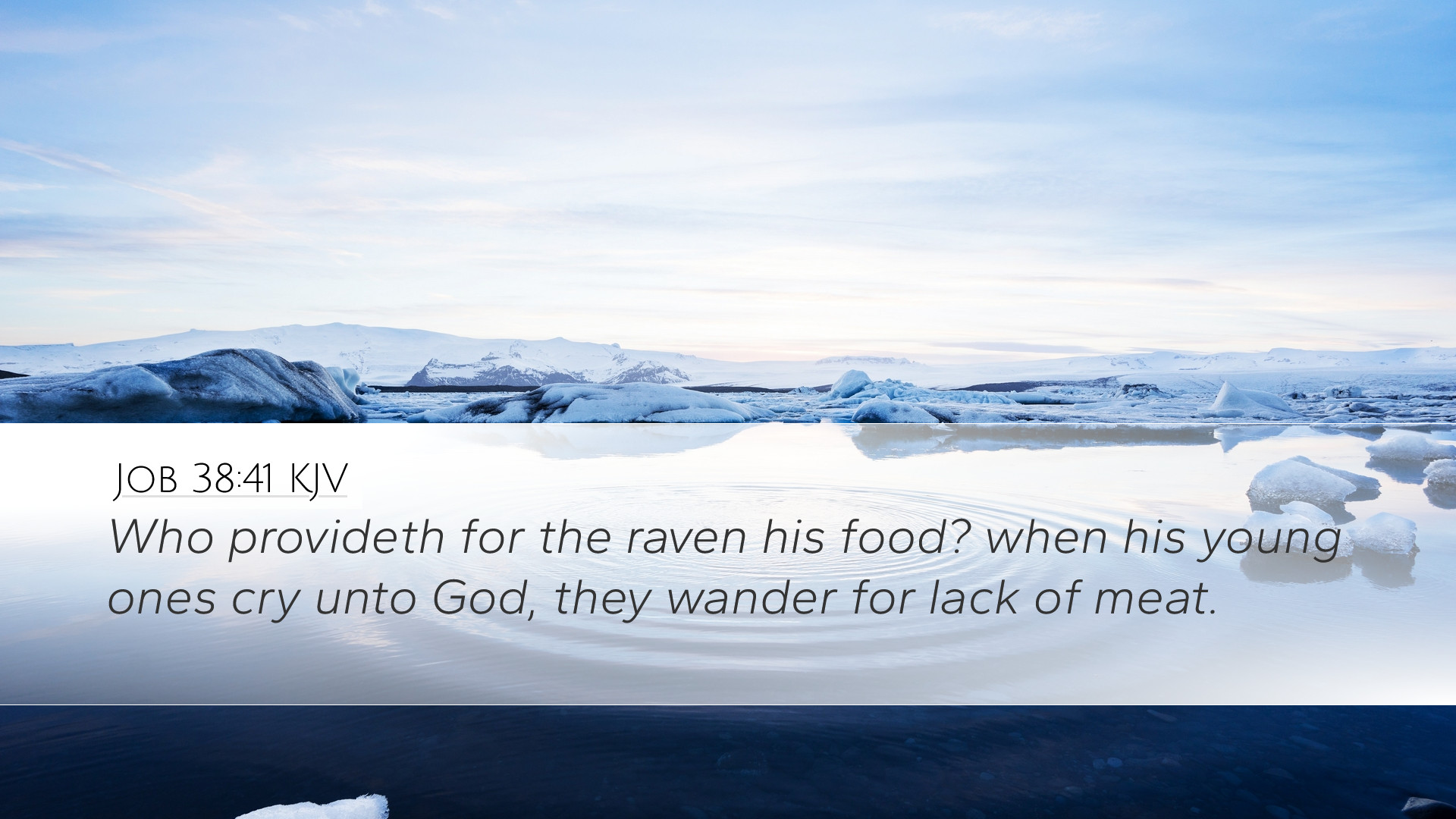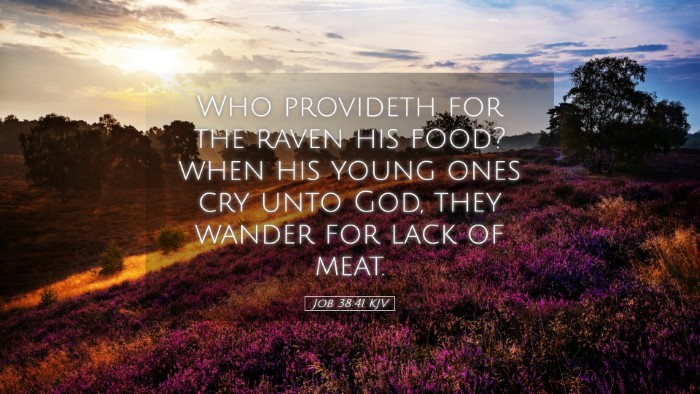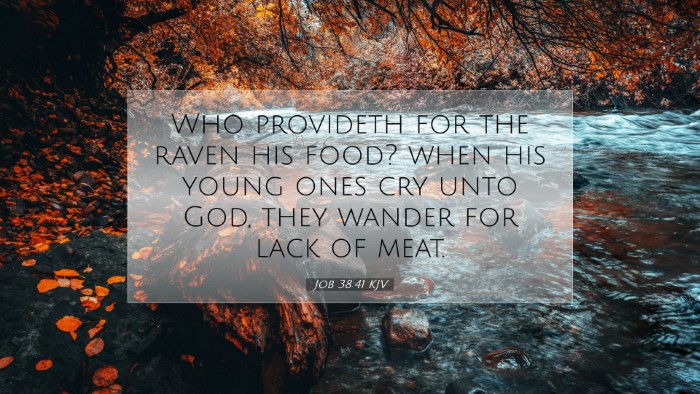Commentary on Job 38:41
Verse Context: Job 38:41 states, "Who provides for the raven his prey, when his young ones cry unto God? they wander for lack of meat." This verse comes from the poignant moment when God speaks to Job out of the whirlwind, challenging Job’s understanding and perspective on divine providence and the intricacies of creation.
Introduction
This passage illustrates an important theological and existential question concerning God’s provision and sovereignty over all creation, from the highest celestial bodies to the lowly creatures of the earth. The imagery of the raven, a creature often viewed in biblical text as a symbol of desolation or neglect, serves to exemplify God's attentive care and provision even for those deemed insignificant.
Insights from Public Domain Commentaries
Matthew Henry's Commentary
Matthew Henry emphasizes God's providence as evident in nature. The raven is highlighted as a creature that necessitates care and sustenance from a divine source. Henry elaborates on the idea that even in times of chaos, such as Job’s experiences, God is still actively involved in the nourishment of His creation.
- Divine Attention: Henry notes that if God attends to the needs of the ravens—creatures that do not sow or reap—how much more will He provide for humanity made in His image? This rhetorical device encourages faith in God's provision in times of distress.
- God's Justice: He contemplates the nature of God's oversight, claiming that our circumstances should not lead us to question His justice or care, especially when nature demonstrates His provision.
- Creation's Reliance: Henry argues that both the physical and spiritual wells of the earthly realm implicitly depend on God’s sustenance and care, reinforcing the understanding of God as the sustainer of life.
Albert Barnes' Notes on the Bible
Albert Barnes provides a detailed analysis linking the raven's dependency to the broader theme of God's sovereign provision. He points out that the imagery of young ravens crying unto God illustrates the innate instinct of creation to seek the Creator.
- Symbol of Care: Barnes highlights how the young ravens crying out symbolizes the instinctive nature of beings to call for help, which showcases God’s intimate involvement with all living things.
- Illustration of Need: He suggests that by observing the ravens, humanity is reminded of their own need and reliance on God for sustenance, which encourages spiritual humility and recognition of divine mercy.
- God’s Sovereignty: Barnes reinforces that God is depicted as sovereign not only over great matters but also over the minutiae of creation, thus encouraging believers to trust God during personal trials.
Adam Clarke's Commentary
Adam Clarke approaches this verse with thoughtful theological reflection. He articulates that the raven's plight showcases the essence of divine providence in every living creature's life, reflecting God's compassion.
- God's Compassion: Clarke underscores that God does not overlook even the smallest aspects of creation, showing that His providential care extends beyond humanity.
- The Nature of Provision: He delineates the idea that God provides for every creature according to its needs, and emphasizes that the ravens have no means of provision other than divine care, establishing a profound connection between creation and the Creator.
- Theological Implication: This necessitates a broader understanding of God's role as Creator and Sustainer, where trusting in God’s provision becomes a vital aspect of faith, especially during times of loneliness or despair, as experienced by Job.
Theological Implications
Through the layered insights offered by these commentaries, several theological implications emerge:
- Trust in Divine Providence: This verse urges believers to trust in God’s providential care, emphasizing that even in the darkest times, God is actively caring for His creation.
- The Magnitude of God’s Care: The mention of the raven serves to remind us that God’s care extends to every creature, regardless of its status or perceived value in the earthly realm.
- Encouragement in Suffering: Like Job, believers are encouraged to bring their cries to God, knowing that they are heard and cared for, thus enabling a deeper relationship with the Creator.
Conclusion
Job 38:41 encapsulates a theological truth that resonates deeply within the narrative of Job—and indeed Scripture as a whole—that God's attentiveness and care are inescapable realities of faith. By examining the insights of esteemed commentators like Matthew Henry, Albert Barnes, and Adam Clarke, we glean profound understanding of God’s providence that transcends human suffering and the natural world’s intricacies.


